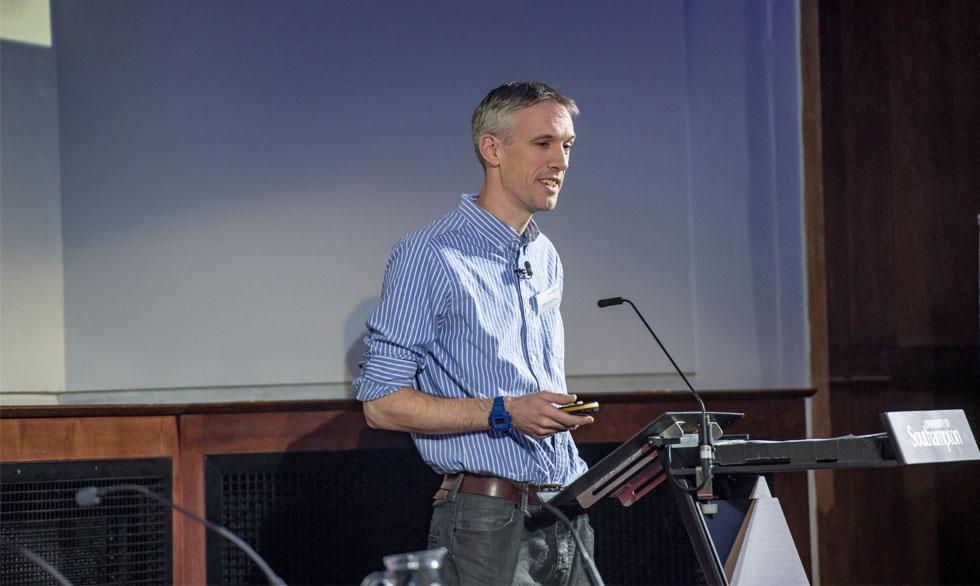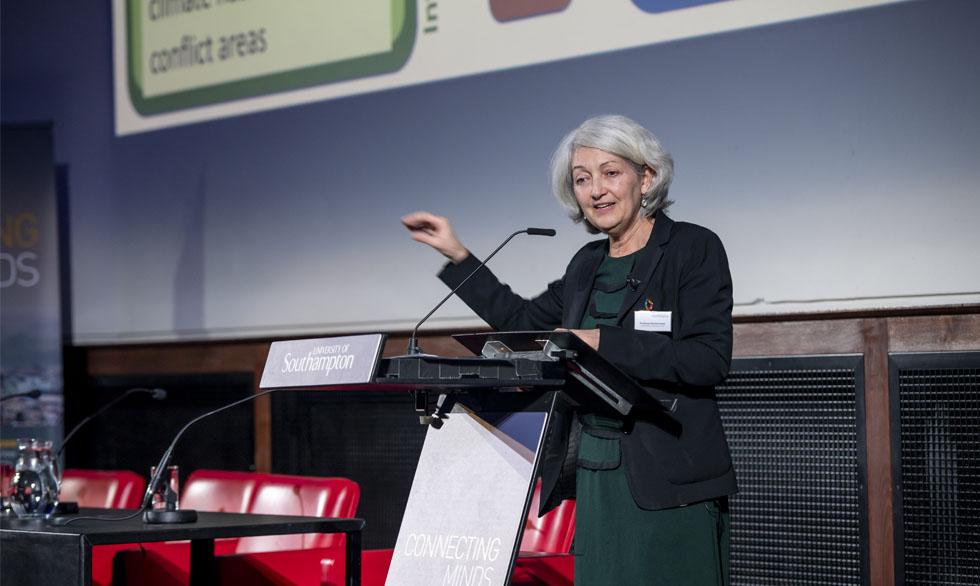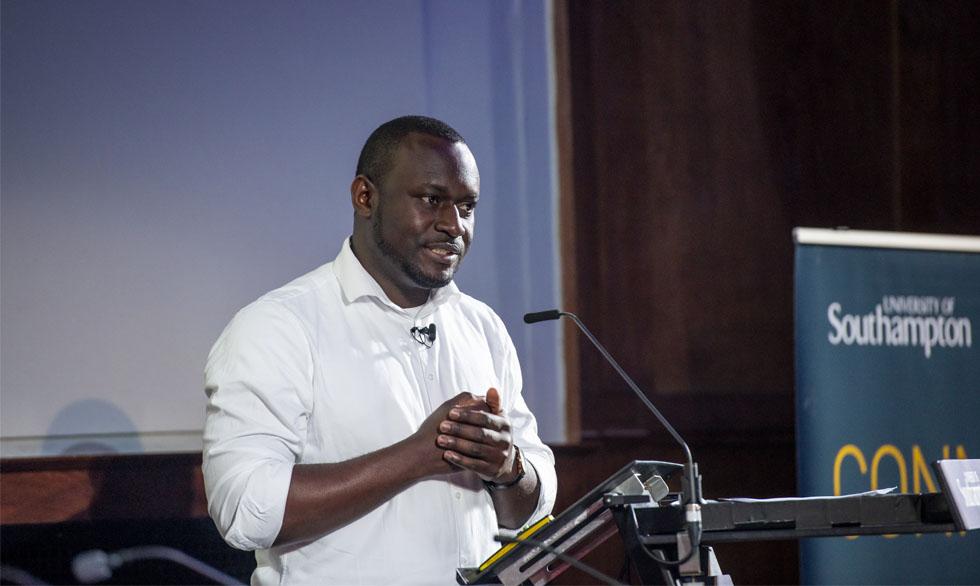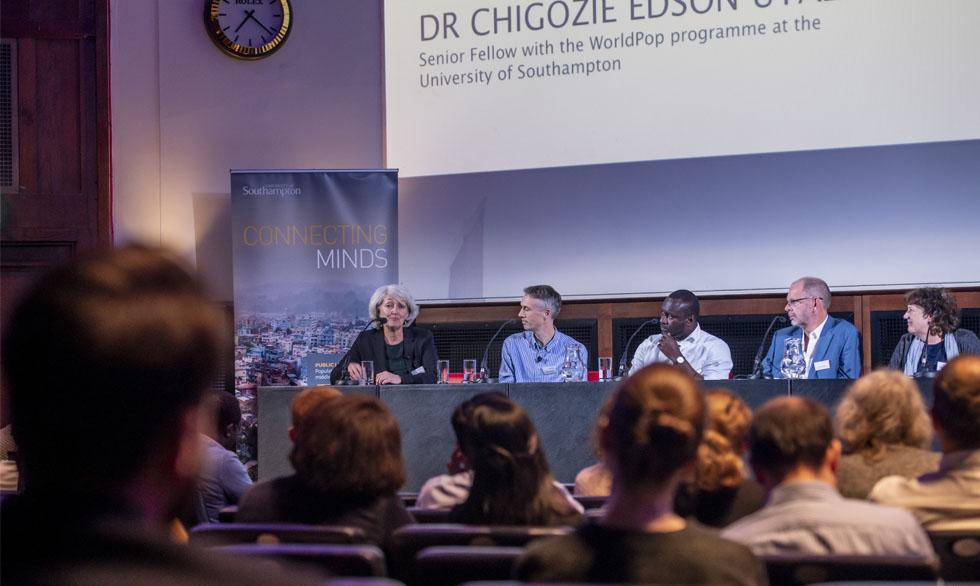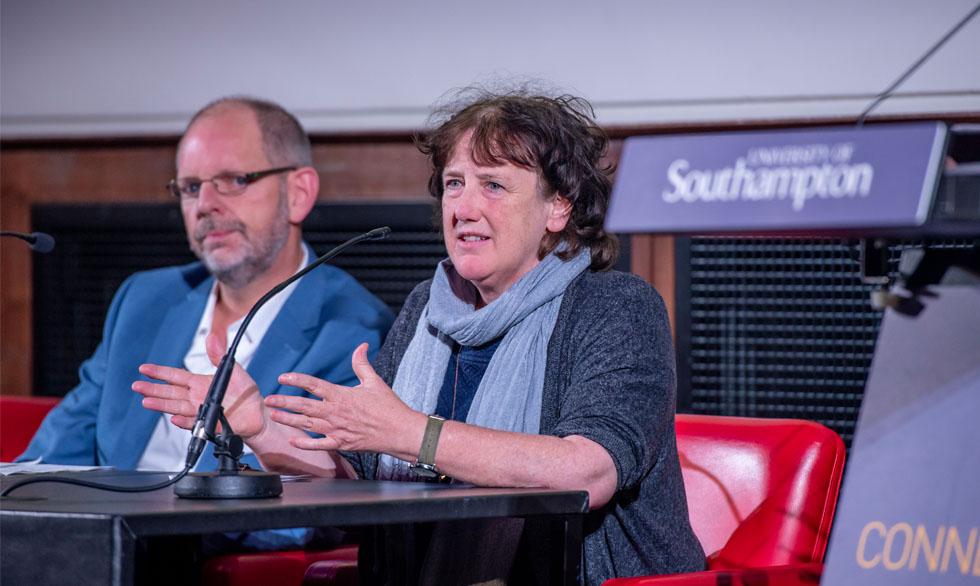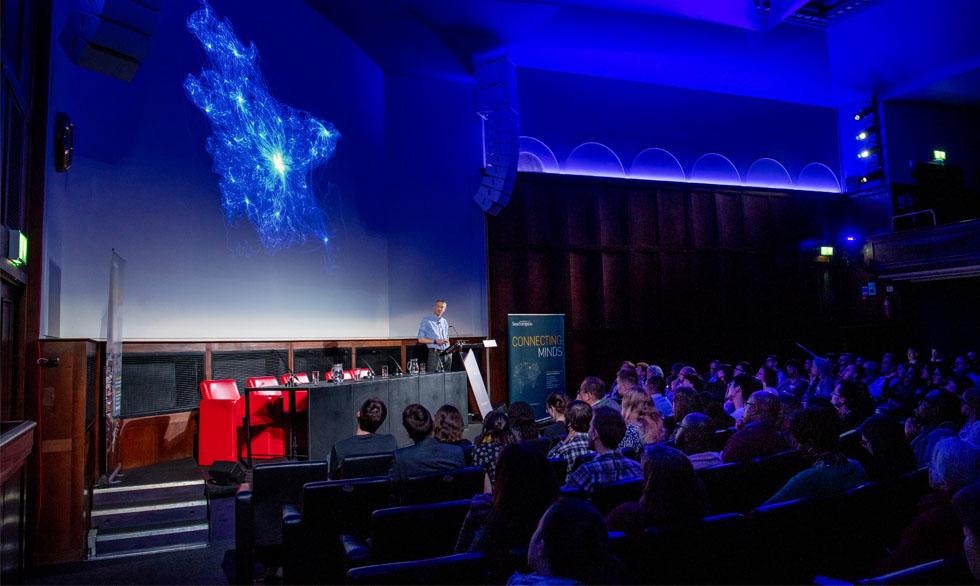Population mapping in low- and middle-income countries - an innovative way to support the Sustainable Development Goals Event
Event details
The final event in our new Public Lecture Series took place on Tuesday 4 December and focused on population mapping in low- and middle-income countries.
Watch the lecture video
Population mapping in low- and middle-income countries
Millions of vulnerable people in low- and middle-income countries are unaccounted for in terms of their numbers and distribution. This leaves governments unable to respond to emergencies or develop fundamental plans for the future.
With unparalleled expertise in population mapping, researchers in our WorldPop programme are enabling these isolated populations to be counted for the first time. As a result, governments across the world can strengthen their capacity for delivering effective aid following an earthquake, carry out targeted intervention programmes to eliminate diseases such as malaria, develop better infrastructure, healthcare and housing, and ensure more people are able to vote.
In the event of a natural disaster, we are one of the first organisations UN agencies and governments consult to assess how many people are affected and to ensure the people in the most need receive adequate aid.
Unique combination of strengths
This reflects our unique combination of strengths across the disciplines of demography, geography and computer science, as well as our world-leading expertise in Geographical Information Systems, integrating cutting-edge spatial data and statistical analysis.
Accounting for isolated and vulnerable populations around the world is an issue that is becoming ever more pressing as the world’s population continues to increase. According to recent UN figures, around 83 million people are born every year, and this is set to have a huge effect on the most vulnerable people around the world. This event will give you the opportunity to hear the latest thinking on how to minimise these impacts.
In this session, our experts discussed the latest techniques and challenges surrounding population mapping, including integrating data from sources such as satellite imagery, mobile phones and surveys.
Keynote speakers

Professor Andy Tatem, University of Southampton
Andy is Professor of Spatial Demography and Epidemiology at the University of Southampton and director of WorldPop and Flowminder, leading a group of more than 50 researchers and data scientists. He is interested in how populations, their characteristics and their dynamics can be mapped at high resolution across low- and middle-income countries. He runs international collaborations with national governments, UN agencies and data providers, and leads multiple research and operational projects.
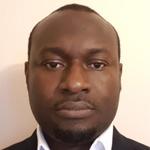
Dr Chigozie Edson Utazi, University of Southampton
Edson is a Senior Research Fellow within the WorldPop program at the University of Southampton. He completed his PhD in Statistics at Lancaster University, during which he worked on spatiotemporal modelling of partially observed processes. Edson has interests in developing novel approaches in spatial and spatiotemporal statistics and applying these to solving health and development problems. Currently, his work focuses on mapping the coverage of childhood vaccinations in low- and middle-income countries.
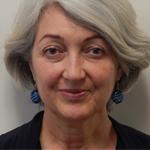
Professor Rachel Snow, United Nations Population Fund (UNFPA)
Rachel is Branch Chief of Population and Development in the Technical Division of the UNFPA, leading the Fund’s work on strengthening national population data systems and the greater use of demographic intelligence in development. With more than 25 years’ experience conducting research on the burden of reproductive health, health system capacity and quality, and the structural obstacles to universal access to reproductive health care, Rachel is a committed advocate for improving population data and research capacity, particularly among women scientists.

Public Lecture Series 2018
Find out more about this year's public lecture series, dedicated to the subject of population and migration.
Learn more
